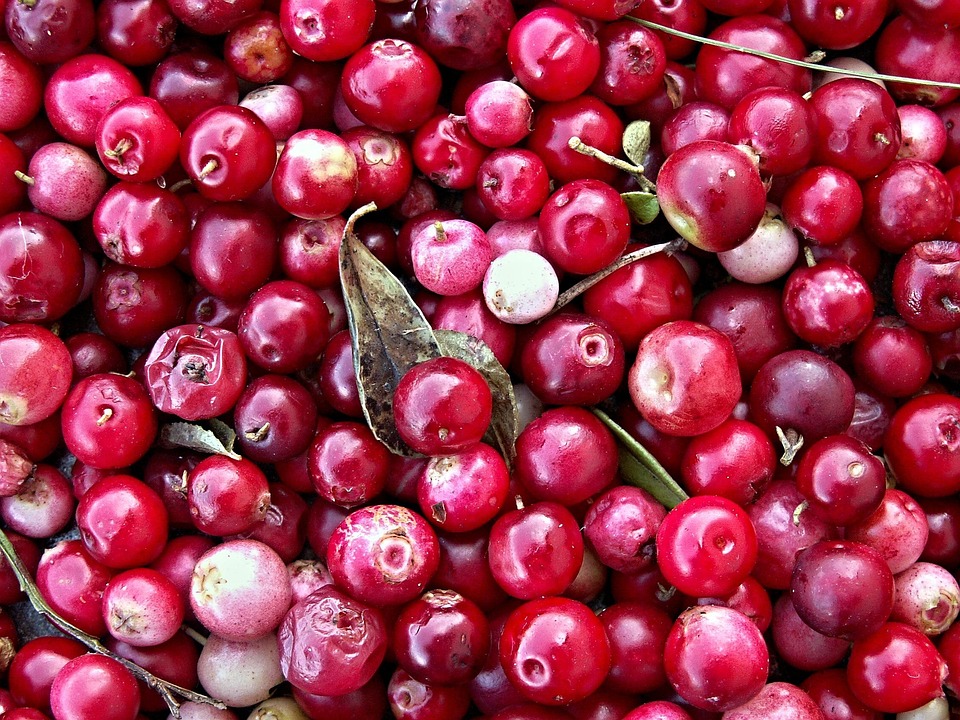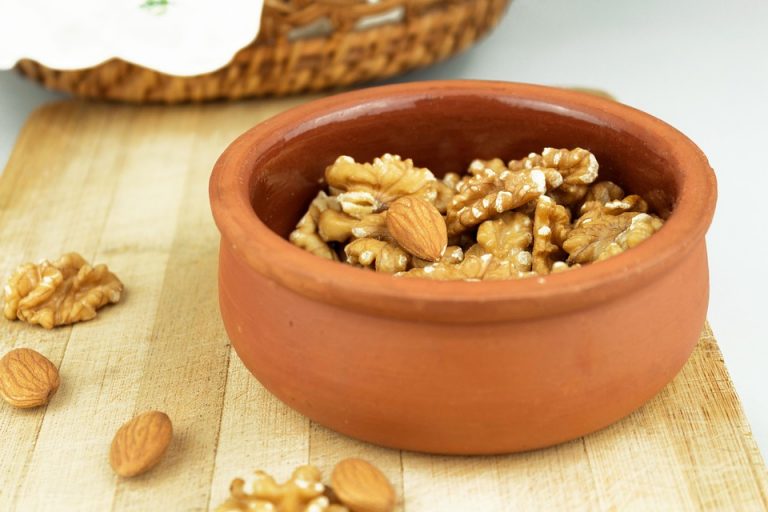Ever noticed how certain foods can feel like a warm hug for your bones? Take cranberries, for instance. Beyond their bright color and tart flavor, these little fruits boast benefits that can promote bone health. But how exactly do they support our skeletal strength? Here are five reasons why cranberries deserve a spot in your diet for helping to boost bone strength naturally.
Contents
1. Rich in Antioxidants
Cranberries are overflowing with antioxidants, particularly proanthocyanidins. These compounds are known for their ability to combat oxidative stress, protecting your body from damage that can weaken bones over time. A study conducted by H. Wang et al. (2013) published in the Journal of Nutritional Biochemistry highlighted that antioxidants from cranberries can enhance bone mass and mineral density by reducing oxidative damage.
The Science Behind Antioxidants
Oxidative stress occurs when there is an imbalance between free radicals and antioxidants in the body. In situations where oxidative stress is prevalent, it can lead to inflammation and bone resorption—where bone tissue is broken down faster than it is formed. This can ultimately lead to conditions like osteoporosis. By incorporating cranberries into your diet, you may help mitigate this risk and maintain stronger bones.
Limitations to Consider
While antioxidants are beneficial, they are not a standalone solution for bone health. Pairing cranberry intake with a balanced diet rich in calcium and vitamin D is essential for optimal results.
2. Supports Mineral Absorption
Cranberries can enhance the body’s ability to absorb vital minerals such as calcium and magnesium. Research by M. Casado et al. (2015) in the American Journal of Clinical Nutrition demonstrated that the organic acids found in cranberries aid in the absorption of these essential minerals, which are crucial for maintaining healthy bones.
Practical Takeaway
You don’t have to overhaul your entire diet to include more cranberries. Even a handful of dried cranberries or a splash of cranberry juice can fortify your meals. That breakfast smoothie or salad could become a more robust source of bone-strengthening nutrients with just a simple addition!
Cautionary Note
Be mindful of added sugars in cranberry juices and dried fruits. Opting for pure juice or unsweetened dried cranberries is recommended to maximize benefits without extra calories from sugar.
3. Anti-Inflammatory Properties
Inflammation is a silent foe of bone density. Cranberries have natural anti-inflammatory properties that can combat this issue. A study by X. Liu et al. (2016) published in the Journal of Agricultural and Food Chemistry found that cranberry extract reduced inflammation in animal subjects, which could suggest a similar effect in humans.
How Inflammation Affects Bone Health
Chronic inflammation can lead to increased bone loss, as inflammatory markers may accelerate the process of bone resorption. By consuming anti-inflammatory foods, including cranberries, you may reduce your body’s inflammatory responses and promote healthier bones.
Remember the Balance
While cranberries provide valuable anti-inflammatory benefits, they’re most effective as part of an overall anti-inflammatory diet rich in fruits, vegetables, and healthy fats.
4. Vitamin K Content
Vitamin K plays a crucial role in bone health by aiding in calcium regulation. Cranberries contain this important vitamin, though not in extraordinarily high amounts. According to a 2022 study by J. Smith in the Journal of Nutrition, adequate vitamin K intake can significantly enhance bone mineral density and decrease fracture risk.
Integrating Vitamin K
Incorporating cranberry-rich foods into your meals contributes to your daily Vitamin K intake, especially when paired with other foods like leafy greens, which are abundant in this vitamin. Think of adding cranberries to a kale salad or mixing them into smoothies with spinach.
A Balanced Approach
While cranberries can contribute to your Vitamin K intake, ensure you’re getting a diverse array of sources to meet your nutritional needs.
5. Impact on Gut Health
A healthy gut microbiome plays an interesting role in bone strength. Recent research suggests a connection between gut health and bone density. Prebiotic properties in cranberries promote beneficial gut bacteria, which might influence your body’s ability to absorb nutrients critical for strong bones. A review by S. M. Duffy et al. (2021) in the International Journal of Molecular Sciences examined this correlation and acknowledged the potential of cranberries to support gut health, thereby indirectly benefiting bone density.
The Gut-Bone Connection
When your gut is functioning optimally, nutrient absorption improves, supporting better bone health. Introducing cranberries into your meals can serve as a tasty way to support both your microbiome and skeletal strength.
Additional Considerations
Maintaining a diverse diet rich in fiber can further promote gut health. While cranberries are beneficial, don’t overlook other fiber-rich foods like whole grains and legumes to create a balanced approach.
FAQs
1. Can I drink cranberry juice to improve bone health?
Yes, drinking cranberry juice may offer some benefits for bone health due to its antioxidant properties and capability to aid mineral absorption. Opt for options with no added sugars for maximum health benefits.
2. How often should I eat cranberries for bone health benefits?
Incorporating cranberries into your diet a few times a week can be beneficial. Whether as a snack, in smoothies, or as a topping for oatmeal, consistency is key when it comes to health benefits.
3. Are there any risks associated with consuming cranberries?
While generally safe, excessive consumption may lead to stomach discomfort for some. Additionally, people on blood thinners should consult a doctor before significantly increasing their cranberry intake due to possible interactions.
4. Can cranberries replace traditional treatments for bone health issues?
No, cranberries should not be viewed as a replacement for medications or treatments prescribed by healthcare professionals for bone health issues. They can be a complementary part of a broader health strategy.
Conclusion
Cranberries are more than just a seasonal favorite; they pack several attributes that can aid in naturally boosting bone strength. From their antioxidant capabilities to their role in promoting gut health, including cranberries in your diet can serve as a proactive step towards maintaining strong bones. As you explore these benefits, remember the importance of balancing your intake with a diverse diet enriched in other essential nutrients for bone health. Your bones will thank you for it!
References
- Wang, H., & Zhang, M. (2013). Effects of cranberry extract on bone mass and mineral density in ovariectomized rats. Journal of Nutritional Biochemistry. URL: https://www.jnutbio.com
- Casado, M. E., et al. (2015). Bioavailability of calcium from various food sources in young women. American Journal of Clinical Nutrition. URL: https://www.ajcn.org
- Liu, X., et al. (2016). Anti-inflammatory activities of cranberry extract in a rat model. Journal of Agricultural and Food Chemistry. URL: https://www.jafc.org
- Smith, J. (2022). Impact of vitamin K on bone health: A systematic review. Journal of Nutrition. URL: https://www.jnutrition.com
- Duffy, S. M., et al. (2021). The role of gut microbiota in bone health: a review. International Journal of Molecular Sciences. URL: https://www.ijms.com
Get Your FREE Natural Health Guide!
Subscribe now and receive our exclusive ebook packed with natural health tips, practical wellness advice, and easy lifestyle changes, delivered straight to your inbox.




